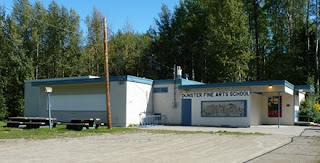The Rocky Mountain Goat Newspaper asked trustee candidates to respond to four questions. I thought I'd publish my responses here as well as to the paper.
Here are their questions:
Here are their questions:
- What makes you a good candidate?
- What are the big issues facing the school board and Robson Valley?
- What is your vision for rural schools?
- Anything else you want to add?
- I have high expectations. For the last three years I have tried to raise the game for everyone involved in student success. I have worked for healthy caring schools and good relationships between all partner groups. I talk regularly with teachers, principals, other staff, and parents about what it going on in the district, especially where there is dysfunction. I have fought for transparent governance, asked tough questions of management and others, and refused to simply rubber stamp motions. Although I respect my fellow trustees, this usually puts me in the minority, often 1 out of 7.
- Main issues: A) inclusive decision making - a Strategic Plan is coming up, I would like to see this be an open-ended consultation about the future, not a confirmation of what has already been decided. B) high expectation for leadership - the board needs to assert its right to set more directions in the district: budgets, programs, and hiring of management. Both the board and senior administration need to do more to follow-up on problems and opportunities. C) infrastructure improvements - many of our schools are in need of big repairs, environmental upgrades, and playground renewal. We should invest in geothermal heating, solar power panels, and planting more trees. Technology infrastructure needs attention, too, including the many restrictions that schools face on purchasing.
- For rural schools, I would prioritize site-based management. Too many aspects of budgets and program direction are controlled centrally, with the result that rural school needs are sometimes put on the back burner and the "conversation on rural education" takes forever. My impression is that we use temporary measures to equalize opportunities for rural vs urban students. What we need is for rural communities to develop a more long-term site plans including better distributed learning and for the school district to support them.
- Trustees are expected to be advocates. I am in favour of a more aggressive yet still respectful stance towards the government, more than just strongly worded letters. We should be building a restoration budget to be submitted along with our balanced budget to show the province what sustainable funding looks like. Our district and region is an awesome place to live and go to school. School boards need high expectations, strong voices, good listeners, blunt honesty, and caring leadership to ensure that we meet student needs in the future. That's what I offer.


